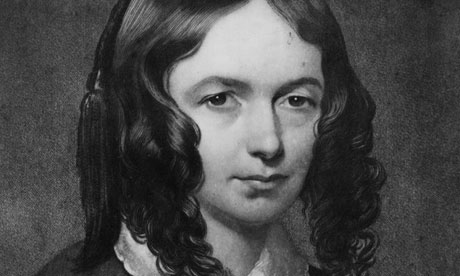
Critical Analysis of If Thou Must Love Me: “If Thou Must Love Me” is an atypical sonnet in many ways. This is because of all its differences from the sonnets written during the period of the Renaissance. In those sonnets, the speaker was always a man. Since this sonnet is written by the poet in… Continue reading Analysis, Central Idea and Theme of If Thou Must Love Me: 2022

About the poet: Elizabeth Barrett Browning was one of the most prominent English poets of the Victorian period. Her poetry was widely popular in both England and the United States during her lifetime. Barrett Browning was born in Coxhoe Hall, between the villages of Coxhoe and Kelloe in County Durham, on 6th March 1806. She was the eldest of 12 children… Continue reading Line by Line Summary of If Thou Must Love by Elizabeth Barrett Browning: 2022

Elizabeth Barrett Browning- “England has given to the world one great poetess – Elizabeth Barrett Browning.” This opening salvo of the 1888 essay “English Poetess” by poet, dramatist, and critic Oscar Wilde pays tribute to the woman poet who, in his view was “the only one that we could name in any possible or remote… Continue reading Love Summary and Analysis by Elizabeth Barrett Browning: 2022

Sonnets from Portuguese is a collection of 44 sonnets written by Elizabeth Barrett Browning during the years 1845-1846 and published in 1850. The sonnets have been very popular since their publication. Elizabeth Browning was a Victorian poet whose poetry was very popular in England as well as in the United States. All her sonnets revolve… Continue reading Analysis of If Thou Must Love Me by Elizabeth Barrett Browning

Sonnets from Portuguese is a collection of 44 sonnets written by Elizabeth Barrett Browning during the years 1845-1846 and published in 1850. The sonnets have been very popular since their publication. Elizabeth Browning was a Victorian poet whose poetry was very popular in England as well as in the United States. All her sonnets revolve… Continue reading Summary of If Thou Must Love Me by Elizabeth Barrett Browning

“A Man’s Requirements” is considered among Elizabeth Barrett Browning’s more well-known love poems. Not as popular as “How Do Love Thee?”, “A Man’s Requirements” is less religious and very direct in its delivery. An in depth analysis of “A Man’s Requirements” is a difficult task given the straightforward nature of the prose. The intentions behind… Continue reading Summary and Analysis of A Man’s Requirement by Elizabeth Barrett Browning

“A Sea-Side Walk” by Elizabeth Barrett Browning contains beautiful imagery coupled with elements of melancholy and angst. From the start, Browning introduces an undertone of negativity: “We walked beside the sea,/After a day which perished silently” (ln 1-2). Her word choice is significant because she is expressing that it was a day the quietly died… Continue reading Summary and Analysis of a Sea Side Walk by Elizabeth Barrett Browning

“The Best Thing in The World” by Elizabeth Barrett Browning is a lyrical poem written in 1855. At this point in her life, she was well into her marriage with Robert Browning and their son was about five years old. This is significant because the light-hearted positive tone of this poem could be reflective upon… Continue reading Summary and Analysis of The Best Thing in the World by Elizabeth Barrett Browning

“A Musical Instrument” by Elizabeth Barrett Browning was published in 1860 with a collection of works called Poems Before Congress. This is among some of her last published works because she died in 1861. This poem uses the story of Pan, god of shepherds, hunting and rustic music, to emphasize the duality of art. While… Continue reading Summary and Analysis of Musical Instrument by E.B.Browning

“Change Upon Change” by Elizabeth Barrett Browning is a poem about love and how it changeslike the seasons. The tone of the poem begins light-hearted and shifts into sad and sarcastic. It is immediately prefaced with evidence of a change: “Five months ago the stream did flow” (ln 1). Five months ago, things were the… Continue reading Change Upon Change Analysis by Elizabeth Barrett Browning





